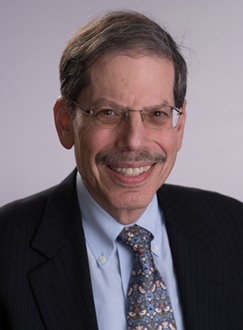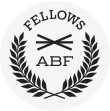
We are very excited to introduce our new Chair of The Fellows, Michael H. Byowitz. Mr. Byowitz practices at Wachtell, Lipton, Rosen & Katz in New York where he was a partner for more than 30 years (and where he presently serves as Of Counsel) specializing in antitrust law and policy, and advising multinational corporations on major domestic and international mergers, acquisitions, joint ventures and corporate takeovers. He has served as New York State Co-Chair of The Fellows and received the Fellows’ Outstanding State Co-Chair Award in 2012.
What does being a Fellow mean to you?
It means being a part an elite honor society of diverse lawyers committed to supporting the important, cutting edge, empirical, interdisciplinary research of the premier legal research institute in the world.
Where were you born and raised?
I was born and raised in the East New York section of Brooklyn, New York, in a family that didn’t have a lot of financial resources but my parents strived and succeeded in providing their children with the opportunity to have a better life than they did. I went to college (Columbia) and law school (NYU) in Manhattan.
What type of law do you practice ad how did you become interested in that particular area?
At Wachtell Lipton, I practice antitrust law (referred to outside the U.S. as competition law), and spend the bulk of my time on mergers and acquisitions. I represent companies seeking to merge before the Federal Trade Commission, the U.S. Department of Justice and State Attorneys General in the United States, and retain and work with competition lawyers in the many jurisdictions around the world that have adopted mandatory premerger notification laws – the Commission of the European Union, the Canadian Competition Bureau, and the Ministry of Commerce (MOFCOM) in China, just to name a few. I also represent clients from time to time in cartel cases which have international dimensions (often investigated by the U.S. Department of Justice and one or more competition authorities around the world).
I didn’t plan to be an antitrust lawyer. My first legal job was as a litigator with a law firm in Washington DC. After working at that firm for two years, seeking more hands on experience, I applied to and received offers from three Divisions of the United States Department of Justice. I decided to join the Antitrust Division because it offered the opportunity to work on both civil cases (mergers) and criminal cases (bid rigging and price fixing). After four years at the Antitrust Division, I was approached by Wachtell Lipton, joined the firm in 1983, and have happily practiced law here ever since.
If you had not decided to pursue a career in law, what would you have done?
To be honest, I’ve wanted to be a lawyer since I was about 12 years old, If I hadn’t become a lawyer, I would probably have gone into something related to American History as this has always been a particular interest of mine.
What was the last book you read?
The last book I finished reading was The Wright Brothers by David McCullough, an enjoyable read with a good deal of interesting information about two incredible individuals and the sister who helped in their efforts. I’m presently in the midst of two books – a biography focusing on Abraham Lincoln’s early years (before he became nationally prominent) and a book on the creator of the Wonder Woman comic book character, a very interesting man who was a prominent supporter of women’s suffrage and the inventor of the lie detector.
What are you most looking forward to during your term as Chair of The Fellows?
The ABF does very important research and the Fellows are increasingly being called upon to raise more substantial funds for the ABF for a number of reasons including cuts in federal grant funding over time. It is very important that we recruit more Fellows and that we convince existing Fellows to continue giving after they attain Life Fellow status. This might sounds like nuts and bolts, but it’s a very important challenge, and one that I hope and plan to meet.
There are many membership organizations to join in the legal field. What makes the Fellows of the American Bar Foundation stand out among the rest for you?
The ABF is the only institution of its kind in the American legal system. It does empirical research on critical areas of practice including access to justice, diversity in the profession, the impact of mass incarceration, how real juries actually function, the extent to which end of life documents are used in intensive care situations, the impact of early childhood education programs, and many, many others. It provides data not previously available for lawyers, judges and society at large to make important policy decisions that affect real people, their lives and the judicial system. There is no one else doing this kind of work on as broad a scope and with such consistently excellent results as the ABF.
